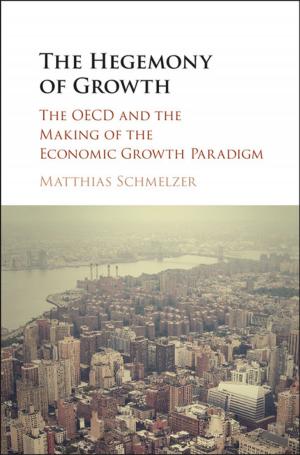| Author: | Jill C. Bender | ISBN: | 9781316482162 |
| Publisher: | Cambridge University Press | Publication: | February 11, 2016 |
| Imprint: | Cambridge University Press | Language: | English |
| Author: | Jill C. Bender |
| ISBN: | 9781316482162 |
| Publisher: | Cambridge University Press |
| Publication: | February 11, 2016 |
| Imprint: | Cambridge University Press |
| Language: | English |
Situating the 1857 Indian uprising within an imperial context, Jill C. Bender traces its ramifications across the four different colonial sites of Ireland, New Zealand, Jamaica, and southern Africa. Bender argues that the 1857 uprising shaped colonial Britons' perceptions of their own empire, revealing the possibilities of an integrated empire that could provide the resources to generate and 'justify' British power. In response to the uprising, Britons throughout the Empire debated colonial responsibility, methods of counter-insurrection, military recruiting practices, and colonial governance. Even after the rebellion had been suppressed, the violence of 1857 continued to have a lasting effect. The fears generated by the uprising transformed how the British understood their relationship with the 'colonized' and shaped their own expectations of themselves as 'colonizer'. Placing the 1857 Indian uprising within an imperial context reminds us that British power was neither natural nor inevitable, but had to be constructed.
Situating the 1857 Indian uprising within an imperial context, Jill C. Bender traces its ramifications across the four different colonial sites of Ireland, New Zealand, Jamaica, and southern Africa. Bender argues that the 1857 uprising shaped colonial Britons' perceptions of their own empire, revealing the possibilities of an integrated empire that could provide the resources to generate and 'justify' British power. In response to the uprising, Britons throughout the Empire debated colonial responsibility, methods of counter-insurrection, military recruiting practices, and colonial governance. Even after the rebellion had been suppressed, the violence of 1857 continued to have a lasting effect. The fears generated by the uprising transformed how the British understood their relationship with the 'colonized' and shaped their own expectations of themselves as 'colonizer'. Placing the 1857 Indian uprising within an imperial context reminds us that British power was neither natural nor inevitable, but had to be constructed.















